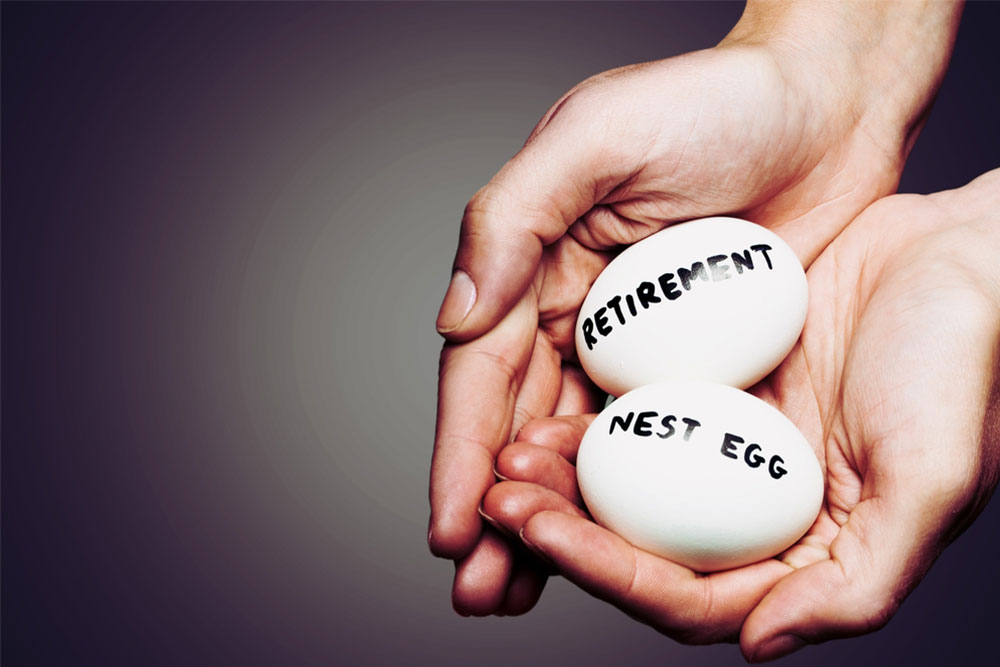When you are a young, 20-something who has just started out on their first job, thinking about retirement—which would be almost 40 years later—is not going to come naturally. You may not even think about it at all until you enter your 30s (or worse, 40s), which is a fatal mistake. The later in life you start financial planning for retirement (FPR), the more likely it is that you won’t have enough time to build a nest egg for when that day finally arrives.
It's important to remember here that FPR is crucial now more than ever, as a study published in the journal Frontiers in Psychology in 2017, titled ‘Financial Planning for Retirement: A Psychosocial Perspective’, clearly indicates. With inflation, and deepening global as well as national-level economic crises, pension schemes for many jobs are ill-equipped to deal with the needs of the elderly. On the other hand, the population of the elderly is increasing, with many still unaware that they need to plan ahead to meet the demands of retired life. The implications of these complications are also likely to be more severe for women for many reasons.

Why women need to focus on their retirement fund NOW
A study titled ‘Women’s planning decisions and choices affect financial wellness in later life’, published in the journal Innovation in Aging in 2018, suggests that while women have longer life expectancies and spend a considerable time of their lives in caregiving for children and the aged (which lowers their lifetime earnings), most do not take a long-term view of financial planning. This leads to greater concerns closer to retirement, and is likely to present major financial problems in retirement as their own health care needs rise up. Lack of access to financial education and resources only exacerbates the problem.
Clearly, this lack of vision and knowledge needs to be remedied for women to be able to lead comfortable retired lives, no matter which walk of life they come from. We talked to Dipika Jaikishan, a financial expert and the co-founder of Basis, a financial service app for women, about why women need to build a retirement corpus and how to get started with it. Here’s what she had to say.
Look ahead, plan, execute
“As we all grow older expenses start piling up on us. This could mean children’s college expenses, health and wellness expenses or simply clearing off debt so that you can start saving up for retirement,” Jaikishan says, adding that the need to understand and resolve this issue is immediate as the population of the elderly is increasing, globally. “The number of people above 60 years is expected to increase to over 350 million by 2050, up from around 120 million at present. This 200 per cent increase over the current numbers is expected to pose a major economic challenge in the future,” she says.

Jaikishan also highlights the fact that women face a huge burden after retirement due to factors like gender pay gap, fewer working years and longer life expectancy. “Research shows while building a corpus for retirement, women will need to save at least twice as much as men,” she says. So, how do women secure their retirement? Jaikishan says you need to begin by asking yourself two questions:
• Isn’t my spouse’s retirement corpus sufficient?
• What is the ideal amount I need to save for my future?
The answer to the former, Jaikishan says, is a straight-up no. Why? Take a look at the factors mentioned above. Even if your spouse is saving or investing enough from his income to create a retirement fund, is it likely to be enough for both of you and your health care needs? Given the likelihood that you may outlive your spouse, are you aware of how to access or utilise this retirement fund? If you’re veering towards answering in a negative on both counts, then you need to take this as an indication that you need to work towards that retirement fund too.

Coming to the second question, the ideal amount of money you need to save depends completely on you, your current income and lifestyle, and the lifestyle you hope or expect to lead after retirement. Jaikishan recommends sitting down and doing some basic calculations as soon as possible. “There are several retirement calculators available easily today,” she says, “You can use any calculator given how simple this calculation is.” Whichever platform you choose, you will have to consider or input the following:
• Your current age, which will help you assess if your career (and therefore, income) has reached the peak it should as per your desired retirement needs.
• Your retirement age, which you will have to decide on based on the scope of your field and your own lifestyle choices. These first two should give you an idea of how many working years you have left, thereby determining the time period within which you need to secure your retirement fund.
• Your monthly expenses. This doesn’t just mean your expenses right now, but also the necessary expenses you will have to bear in the future for yourself, including health care, EMIs, children’s wedding expenses, etc. Apart from the one-time expenses, like your child’s wedding, and loans or EMIs that you hope to be done with before retiring, the remaining expenses are likely to remain the same for you if you hope to maintain your current lifestyle (or improve it) after retirement. Since this amount will not be provided by your salary after retirement, but your savings and investment, your retirement corpus should hold enough to guarantee this.
• Now, factor in inflation at the rate of six per cent per year—the rate of annual inflation which is most commonly accepted by financial experts and advisors. If you don’t factor in inflation, you’re most likely to fall short of the ideal amount you need.
• Based on the time period you have for the accumulation of a retirement corpus, and the amount you now know you need to maintain your lifestyle after retirement, figure out how best to invest your income and savings to get higher returns. It’s important to remember that your appetite for risk-taking will diminish after you retire, and you’ll need investments that can guarantee regular and safe returns. So, it may be best to discuss your needs with a financial advisor and chalk out a proper investment plan before and after retirement.
Following these easy steps may appear overwhelming or intimidating at first, but know that you will have to take this up one day or the other in your future. So, why not do it sooner rather than later? The best part about calculating your retirement fund right now is not just that you’ll get longer to work towards it, but also that you’ll have financial independence and peace of mind for the rest of your life.
For more about planning your finances, head to the Her Circle Finance Tracker in the Goals section.